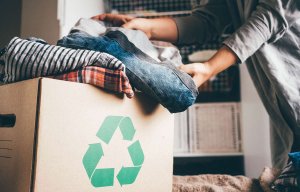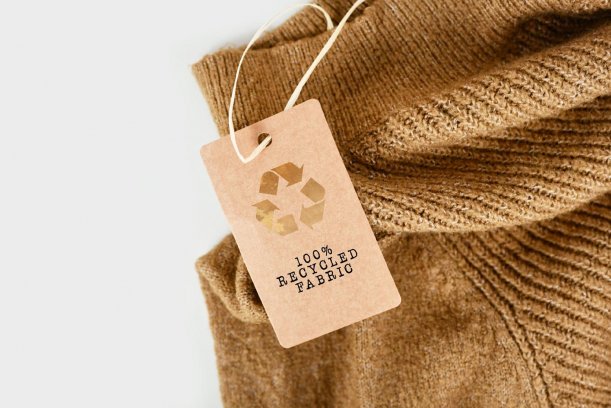
Swiss network supports Worn Again
Machines incorporate the know-how of several decades with recognised quality standards in production.

19th February 2024
Innovation in Textiles
|
Switzerland
Many end-users now expect recycled materials to be in textile products they purchase and this is definitely driving innovation throughout the industry. There are, however, still many technical and economic challenges facing yarn and fabric producers using recycled resources and members of the Swiss Textile Machinery Association offer some effective solutions.
Synthetic recycled materials such as PET can usually be treated similarly to new yarns, but there are additional complexities where natural fibres like wool and cotton are concerned.
Spinning
The use of mechanically recycled fibres in spinning brings specific quality considerations. There are higher levels of short fibres and neps and the fibres may often be coloured, particularly if post-consumer material is used. There are also limitations in terms of fineness. The Uster Statistics 2023 edition features an extended range of fibre data including benchmarks for blends of virgin and recycled cotton.
In general, short fibres such as those in recycled materials can easily be handled by rotor spinning machines. For ring spinning, the shorter the fibres, the more difficult it is to guide them through the drafting zone to integrate them into the yarn body. For wider yarn counts and higher yarn quality however, the focus is now shifting to ring spinning. The presence of short fibres is a challenge, but Rieter has solutions to address this issue.
Wool
For recycling, wool fibres undergo mechanical procedures such as shredding, cutting, and re-spinning, influencing the quality and characteristics of the resulting yarn. These operations remove the natural scales and variations in fibre length of the wool, causing a decrease in the overall strength and durability of the recycled yarns. This makes them more prone to breakage, especially under the tension exerted during knitting.
Adapting to process recycled materials often requires adjustments to existing machinery and machines must be equipped with positive yarn suppliers to control fibre tension. Steiger engages in continuous testing of new yarns on the market, to check suitability for processing on knitting machines. For satisfactory quality, the challenges intensify, with natural yarns requiring careful consideration and adaptation in the knitting processes.
Nonwovens
Nonwovens technology was initially developed for recycling, to reduce manufacturing costs by processing textile waste and previously unusable materials into fabric structures. As such, nonwoven production lines – where fibre webs are bonded mechanically, thermally or chemically – can easily process almost all mechanically and chemically recycled fibres.
Autefa Solutions supplies full nonwoven lines from a single source, enabling products such as liners, wipes, waddings and insulation to be produced in a true closed loop. Fibres can often be used up to four times in some products.
Strategy
Services, technology and machines from members of Swiss Textile Machinery support the efforts of the circular economy to process recycled fibres. The machines incorporate the know-how of several decades, with recognised quality standards in production and materials.
Stäubli’s global ESG (environmental, social and governance) strategy foes further and defines KPIs (key performance indicators) in the context of energy consumption, machine longevity and recycling capacity in production units worldwide, as well as in terms of machinery recyclability. The machine recyclability of automatic drawing in machines, weaving systems and jacquard machines ranges from 96-99%.

Business intelligence for the fibre, textiles and apparel industries: technologies, innovations, markets, investments, trade policy, sourcing, strategy...
Find out more